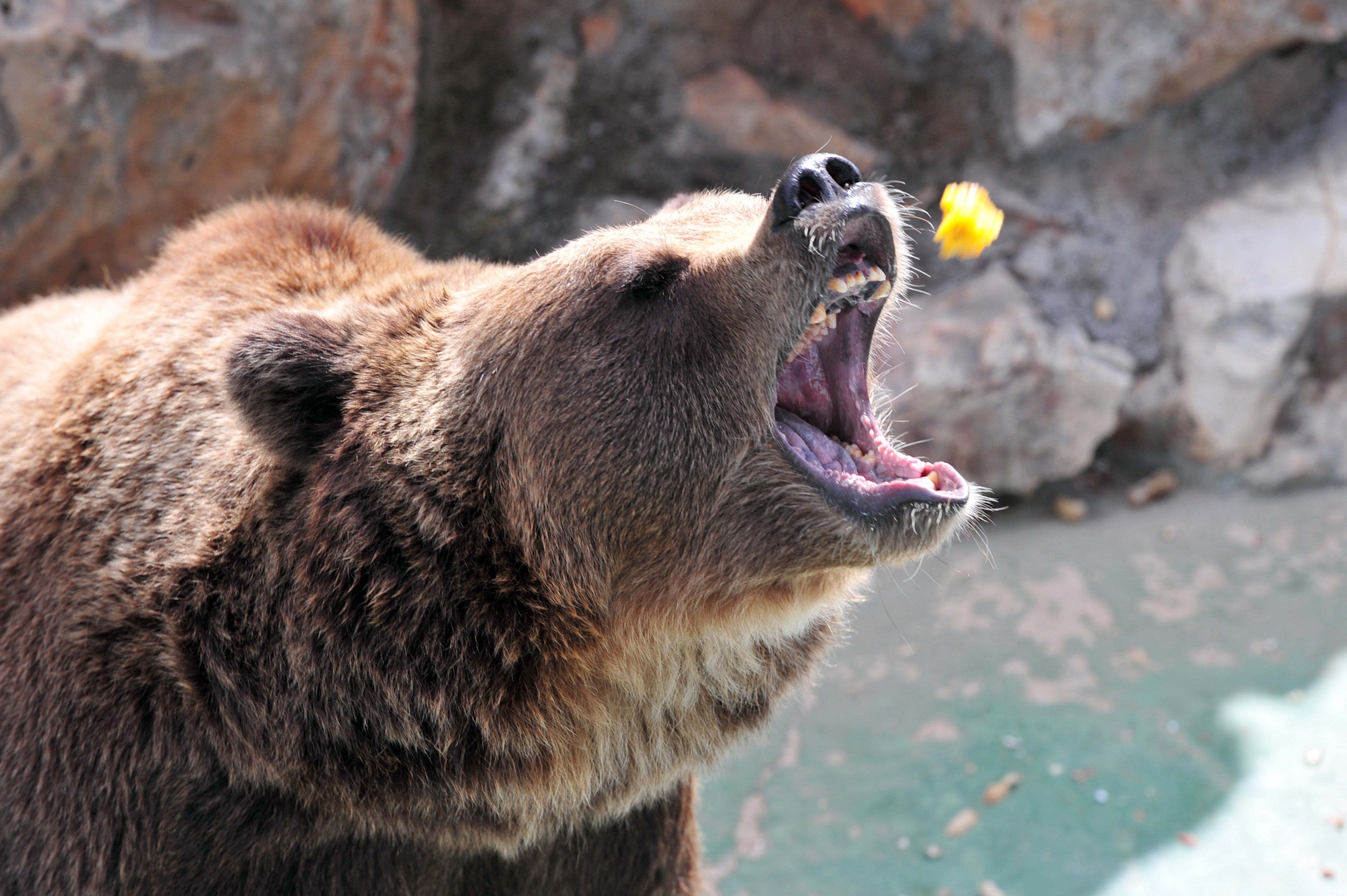Rare Italian brown bear notorious for breaking into bakery captured and placed in captivity
Nearly 600 people file petition against decision to capture bear known as ‘Juan Carrito’

A rare Italian bear famous for breaking into a bakery and gorging on biscuits has been captured by authorities in the central Italian region of Abruzzo, will be removed from the wild and placed in a sanctuary.
The young Marsican brown bear, known locally as Juan Carrito, has been spotted several times in Italy’s Roccaraso town and nearby areas in recent weeks and was finally captured on Sunday afternoon after being lured into a “tube trap”.
The two-year-old bear, which, according to conservationists is one of only up to 60 Marsican brown bears left in the world, was anaesthetised and moved to the Palena bear reserve in Chieti province, which has three female bears, according to La Repubblica.
The capture comes almost three months after the radio-collared bear was caught and released in the mountains in December last year.
Juan Carrito, however, returned to populated areas within a week.
“The intervention was necessary to protect the bear and keep it away from potentially dangerous situations,” Lucio Zazzara, the president of the Maiella national park, told the Guardian. He said the habitat at the reserve would be better suited for the animal, which has been “feeding almost exclusively on waste for too long”.
But the decision to capture the bear and remove it from the wild has received a backlash, with over 600 people signing a petition against the move.
Calling it “a sad situation caused by lack of prevention”, animal conservation group World Wildlife Fund (WWF) Italy said that “even in the awareness that the complexity of the situation could not have simple solutions, it remains to be asked whether everything was really done to avoid such a sad turn of events”.
The group said that while the protocol was in place to reattempt a capture and release operation, “adverse weather conditions” meant the authorities decided not to release the bear back into the wild.
The WWF was highly critical of “deeply wrong” human activity that led Juan Carrito to become “more and more confident” in approaching populated areas.
It slammed both the authorities and locals for “the lack of basic prevention measures such as anti-bear bins, the repeated abandonment of food in the street and the constant chasing of the bear, including by dogs”.
“These are all behaviours that have been recommended to be avoided for years and that instead have been repeated for months without any sanctions.”
The group demanded assurance that “this phase of detention is only temporary... short and in conditions with as little human presence as possible”.
“Either we want the bear or we don’t want it,” said Dante Caserta, WWF Italy’s vice president.
“If we say we want it, then we must do everything so that it can visit our territories in a safe and natural way, without making it a circus animal attracted to villages so that tourists can photograph it with their phones. Otherwise it means we don’t want it.”
Join our commenting forum
Join thought-provoking conversations, follow other Independent readers and see their replies
Comments
Bookmark popover
Removed from bookmarks